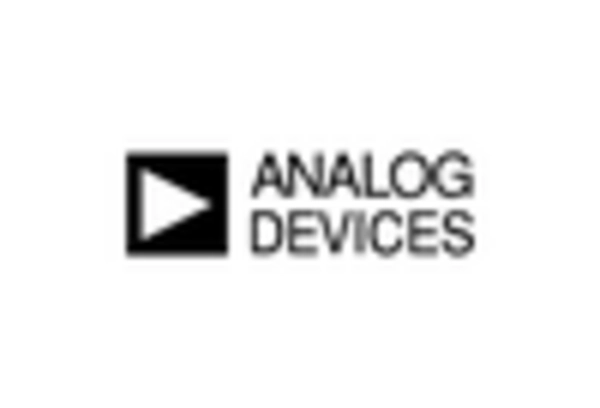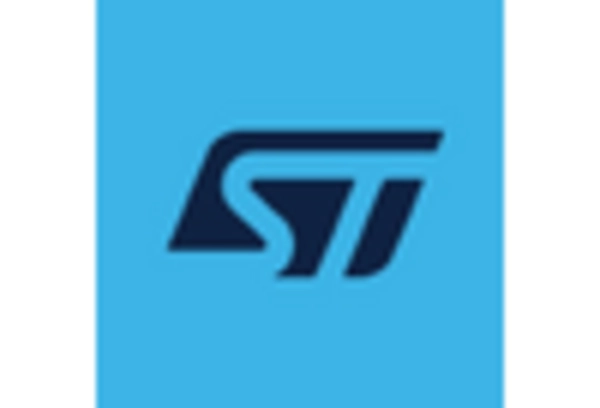Automotive Electrification Trends
The analog semiconductor market in Germany is significantly impacted by the ongoing trends in automotive electrification. As the automotive industry shifts towards electric vehicles (EVs) and hybrid models, the demand for analog semiconductors is expected to increase substantially. These components are vital for battery management systems, power distribution, and vehicle control systems. The market is anticipated to grow by 12% annually, driven by the German government's commitment to reducing carbon emissions and promoting electric mobility. This transition not only boosts the analog semiconductor market but also encourages collaboration between automotive manufacturers and semiconductor companies to develop innovative solutions.
Increased Focus on Industrial Automation
The analog semiconductor market in Germany is benefiting from an increased focus on industrial automation. As industries strive for greater efficiency and productivity, the demand for analog components in automation systems is rising. These components are essential for process control, signal processing, and data acquisition in automated environments. The market is projected to expand by 10% over the next few years, reflecting the growing investments in smart manufacturing technologies. This trend is likely to enhance the competitiveness of German manufacturers in the global market, as they leverage advanced analog solutions to optimize operations and reduce costs.
Expansion of the Internet of Things (IoT)
The expansion of the Internet of Things (IoT) is a major driver for the analog semiconductor market in Germany. With the proliferation of connected devices across various sectors, including healthcare, manufacturing, and smart cities, the demand for analog components is on the rise. These components are essential for sensor interfaces, signal conditioning, and data conversion, which are critical for IoT applications. The market is projected to grow by 15% annually due to the increasing adoption of IoT solutions by more industries. This growth presents opportunities for German manufacturers to innovate and develop specialized analog devices tailored for IoT applications, thereby enhancing their market position.
Technological Advancements in Manufacturing
The analog semiconductor market in Germany is experiencing a surge due to rapid technological advancements in manufacturing processes. Innovations such as advanced lithography techniques and improved fabrication methods are enhancing production efficiency and yield. This is particularly relevant as The market is projected to reach $5 billion by 2026, driven by the increasing demand for high-performance analog devices. Furthermore, the integration of automation and AI in manufacturing is likely to reduce operational costs, thereby making German manufacturers more competitive. As a result, the analog semiconductor market is poised for growth, with companies investing heavily in state-of-the-art facilities to meet the evolving needs of various sectors, including automotive and industrial applications.
Rising Demand for Renewable Energy Solutions
The analog semiconductor market in Germany is significantly influenced by the rising demand for renewable energy solutions. As the country aims to transition towards sustainable energy sources, the need for efficient power management systems is becoming paramount. Analog semiconductors play a crucial role in energy conversion and management, particularly in solar inverters and wind turbine controllers. The market for these applications is expected to grow at a CAGR of 8% over the next five years, reflecting the increasing investments in green technologies. This trend not only supports Germany's energy goals but also positions the analog semiconductor market as a key player in the broader energy landscape.












